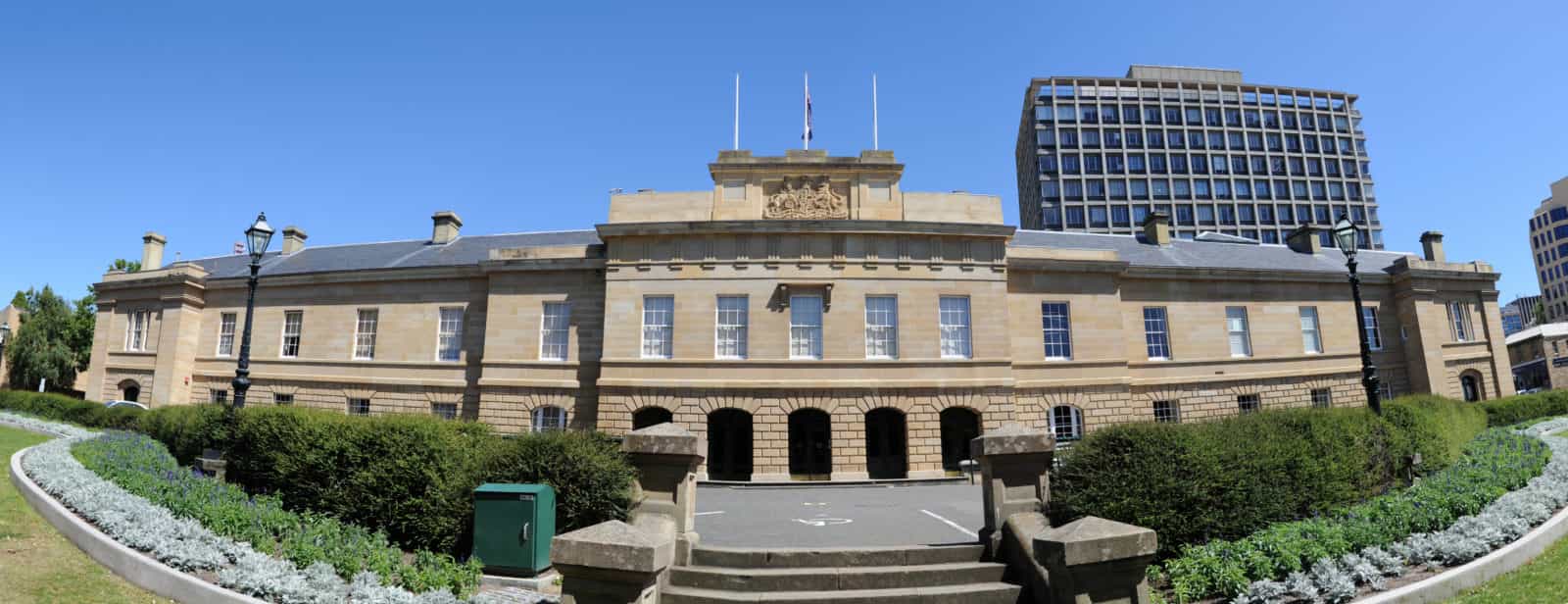The Governor
The Governor has an important formal role as part of the Parliament. He summons, prorogues and dissolves Parliament, on the advice of the Ministry. When summoning Parliament, the Governor makes a speech to all Members outlining the Government’s legislative program for the forthcoming session. The Governor also acts on behalf of the monarch to give the Royal Assent to Bills passed by the House of Assembly and Legislative Council.
It is through Parliament and the free speech of its Members that matters of public concern can be raised.
House of Assembly
In the House of Assembly the political grouping which has a majority of the Members, i.e. thirteen or more, forms the Government but on several occasions in Tasmania’s recent history there has been a Government which has not had a majority and has formed a formal or casual coalition with Members of another party or independents to form a Government.
The government leader is the Premier and the size of the Ministry varies but can be no more than ten. The largest minority party in the House is known as the Opposition and is the ‘alternative government’.
The initiative for government action resides with the House of Assembly. Nearly all legislation is introduced to the Parliament in the House. Appropriation, land tax and income tax Bills must originate in the House of Assembly.
It is in the House of Assembly that Governments are made, where their policies first take legislative shape, and where a Government comes face to face with the Opposition which will attempt to show itself to be a better choice for government by pointing out deficiencies, as it sees them, in government policies and suggesting alternative policies to those put forward by a Government. The Government has the opportunity in the House to explain its policies fully and the action it intends to take to implement them.
